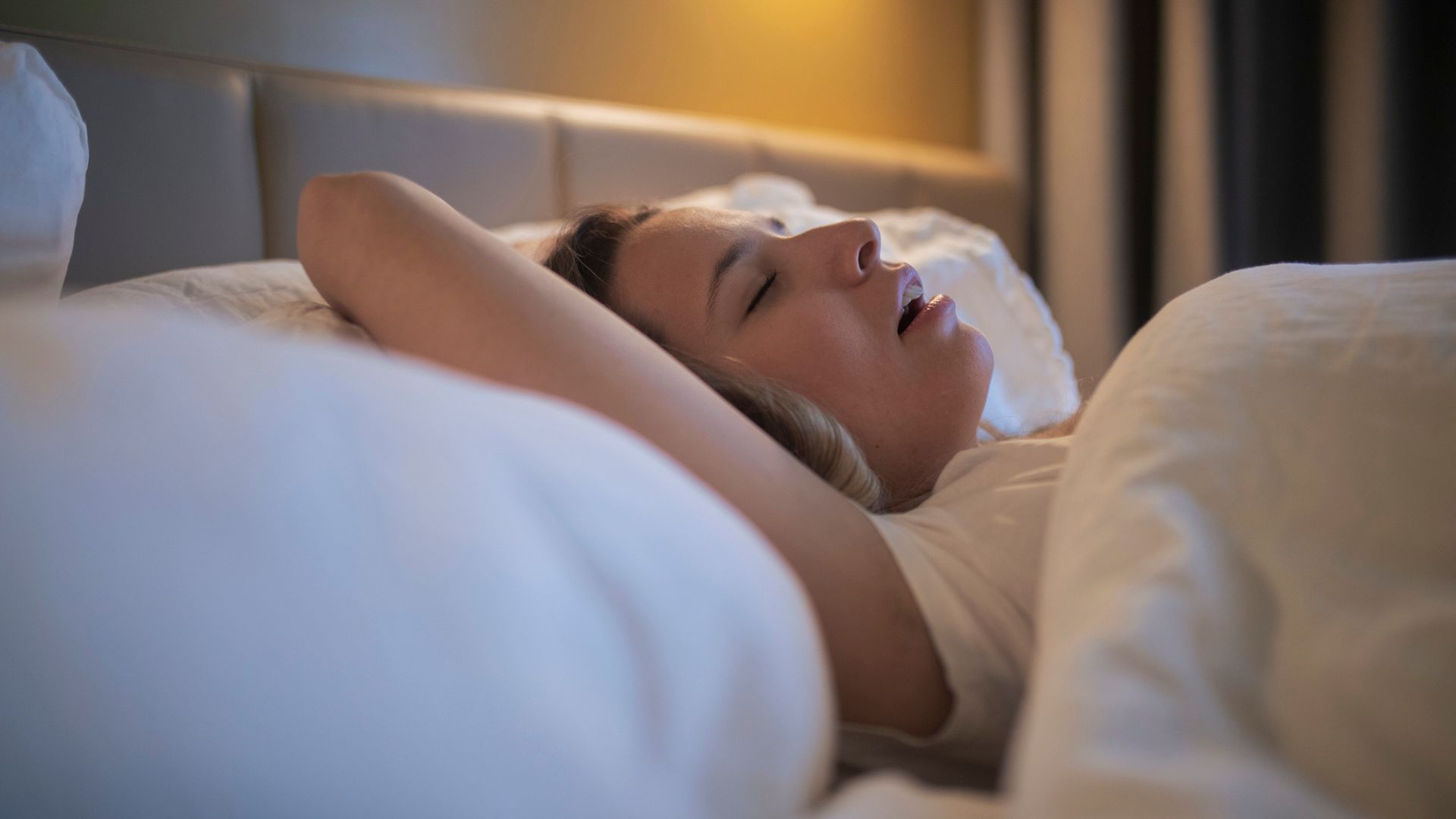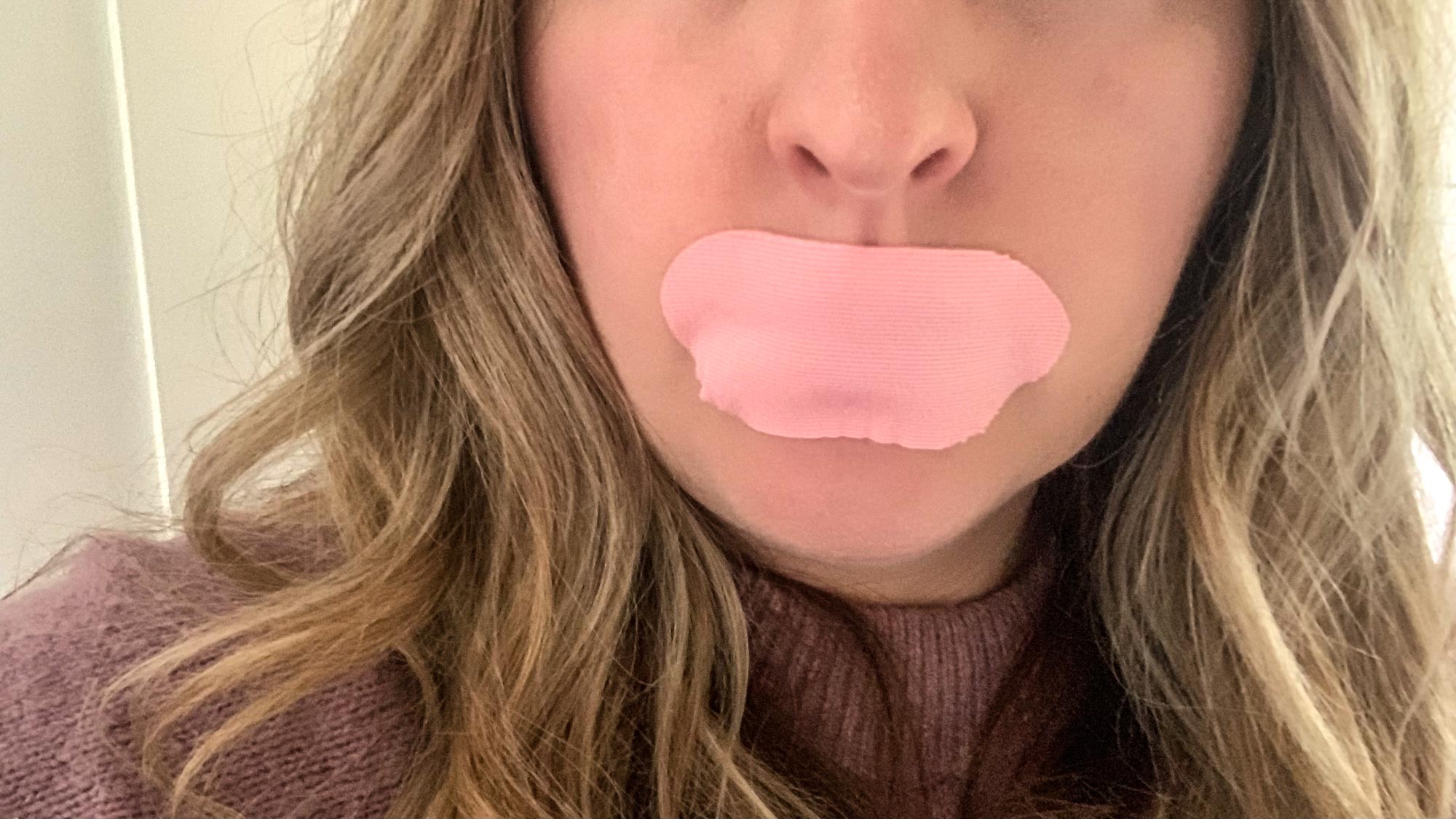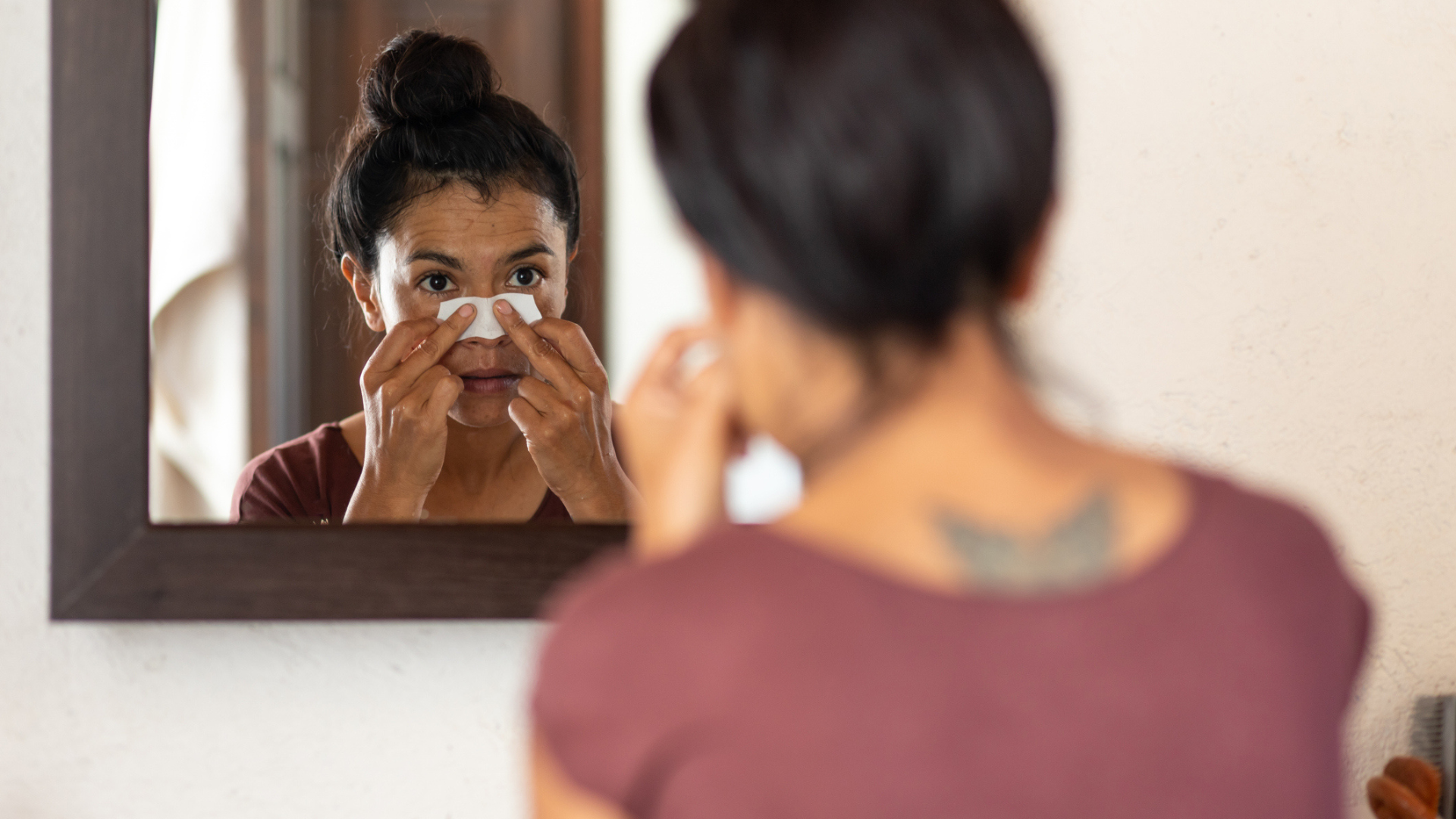No, not mouth tape — experts share 5 safe ways to stop mouth breathing at night
From sleeping on your side to nasal strips, the experts reveal how to stop mouth breathing

Here at Tom’s Guide our expert editors are committed to bringing you the best news, reviews and guides to help you stay informed and ahead of the curve!
You are now subscribed
Your newsletter sign-up was successful
Want to add more newsletters?

Daily (Mon-Sun)
Tom's Guide Daily
Sign up to get the latest updates on all of your favorite content! From cutting-edge tech news and the hottest streaming buzz to unbeatable deals on the best products and in-depth reviews, we’ve got you covered.

Weekly on Thursday
Tom's AI Guide
Be AI savvy with your weekly newsletter summing up all the biggest AI news you need to know. Plus, analysis from our AI editor and tips on how to use the latest AI tools!

Weekly on Friday
Tom's iGuide
Unlock the vast world of Apple news straight to your inbox. With coverage on everything from exciting product launches to essential software updates, this is your go-to source for the latest updates on all the best Apple content.

Weekly on Monday
Tom's Streaming Guide
Our weekly newsletter is expertly crafted to immerse you in the world of streaming. Stay updated on the latest releases and our top recommendations across your favorite streaming platforms.
Join the club
Get full access to premium articles, exclusive features and a growing list of member rewards.
If you wake up with a dry mouth, bad breath, or you’ve been snoring (and you don't usually), it could mean you’ve been mouth breathing.
Nasal congestion, stress, or more serious issues, can all trigger nighttime mouth breathing, which can disrupt the quality of your sleep and contribute to dental problems and even sleep conditions.
So, what’s the solution? Mouth taping has become a popular cure on social media, but we look at whether it's safe and what the alternatives are.
And, we also explore why you may be mouth breathing at night, the potential health downsides, and how to start breathing through your nose.
Why do people mouth breathe at night?
One survey conducted in the US indicated that more than half of us are mouth breathers at night, while studies show that sleep disorders like sleep apnea can cause mouth breathing. But what are the other reasons?
“We default to breathing through our noses during sleep; however, if there is obstruction of the nasal passageways or we cannot get sufficient air through the nose, we switch to mouth breathing. Some potential causes of nasal obstruction include nasal congestion from allergies, colds, or sinus issues, which makes breathing through the nose difficult,” explains medical director at Dreem Health, Dr. William Lu.
However, it could be a sign of a bigger problem, like a “deviated septum, large adenoids, or nasal polyps can also obstruct airflow, leading to mouth breathing as a fallback. In some cases, conditions like snoring and sleep apnea contribute to this, as the body struggles to maintain proper airflow during sleep," he adds.
Stress can also contribute to mouth breathing, as, according to Trauma Research UK, when we're anxious and our body shifts into "fight or flight" mode, we're more likely to shift into mouth breathing.
Does mouth tape help you sleep better?

Celebrities and TikTokers may have made mouth taping popular, but does it work, and is it safe?
Dr. Lu explains that mouth tape can help some people sleep better by “encouraging nasal breathing. For people who mouth breathe due to habit rather than a structural or medical issue, mouth tape can gently train the body to keep the mouth closed at night.”
However, he adds that it can be risky and it’s not suitable for everyone: “Especially those with significant nasal obstruction, moderate to severe sleep apnea, or breathing difficulties.”
Dr Hana Patel, sleep expert at Time4Sleep, adds that she wouldn’t recommend the trend either, as you can “run the risk of blocking airflow.”
However, she explains there are many health benefits to nasal breathing. “Our noses filter the air that we breathe, filtering and taking away material such as dust, pollen, ash, bacterial and hazardous particles.”
How to stop breathing through your mouth at night
1. Sleep on your side
If you're a back sleeper, then you should think about switching to your side.
This is because sleeping on your side can help by “promoting better airflow through the nose and minimising airway obstruction. Side sleeping helps keep the airway more open and reduces the likelihood of the tongue falling back, which makes it easier to breathe through the nose,” explains Dr Lu.
2. Use nasal strips
If sleeping on your side doesn’t help, a drug-free solution could be nasal strips, which are simply placed over your nose before you go to sleep.
So, how do they help? “Nasal strips can help by physically opening the nasal passages, making it easier to breathe through the nose during sleep,” explains Dr Lu.
“This can improve airflow, especially for people with nasal congestion due to allergies, colds, or a deviated septum. By enhancing nasal breathing, nasal strips can reduce snoring, improve sleep quality, and lower the likelihood of breathing through the mouth.”

3. Use a mouthguard
A mouth guard as you sleep may seem excessive, but for those whose mouth breathing is tied to jaw position, it can help to keep your mouth closed when you sleep, and also help to improve overall sleep quality.
“An oral appliance can help by keeping the mandible in a forward and closed position. This helps to keep the airway open by repositioning the lower jaw and tongue, which can prevent obstruction and reduce the need for mouth breathing,” says Dr Lu.
4. Invest in a humidifier
While the best dehumidifiers are great for drawing moisture away from the air, using a humidifier at night can help keep you stay hydrated as it adds moisture to the air, says licensed clinical psychologist and sleep expert Dr. Leah Kaylor.
“Dry air can make your nasal passages and throat feel irritated, leading to more mouth breathing. A humidifier adds moisture to the air, making it easier to breathe through your nose and reducing dryness and irritation," she explains.
5. Ditch the alcohol
While having a few glasses of wine can help you relax after a stressful day, and initially help you fall asleep, it can play havoc with your sleep quality and may even make mouth breathing worse.
So, why is this? Dr. Kaylor explains that: “Alcohol relaxes the muscles in your throat and jaw. That makes your mouth more likely to fall open during sleep and can worsen snoring and breathing issues. Steering clear of alcohol — especially within a few hours of bedtime — can make nose breathing easier and improve your sleep quality.”
What are the risks of mouth breathing at night?
There are certain risks associated with mouth breathing at night, including the following.
1. Snoring
Both snoring and sleep disorders are associated with mouth breathing, says Dr. Kaylor.
“Obstructive Sleep Apnea (OSA) is a common sleep disorder characterised by repeated interruptions in breathing during sleep due to the obstruction of the upper airway," she explains.
According to research, mouth breathing is common in those who have Obstructive Sleep Apnea (OSA), but it can also increase the severity of the condition.
Dr. Kaylor also explains that during sleep, especially when we’re mouth breathing, the muscles in the throat relax.
“For some sleepers, these muscles become overly relaxed, causing the soft tissue in the back of the throat to the point of partial or complete airway collapse. As air tries to flow through this narrowed passage, it can create vibrations in the soft tissue, resulting in the sound of snoring.”
2. Dry mouth and dental issues
It might sound obvious, but sleeping with your mouth open can leave you feeling very dry by the morning. However, the effects go beyond just a dry mouth.
Dr. Lu explains that “mouth breathing at night can increase the risk of cavities and gum disease,” as the lack of saliva creates the perfect environment for bacteria to thrive.
3. Bad breath
One study of 55 children between the ages of 5 and 14 showed that mouth breathing can result in bad breath, with the researchers concluding that "statistically significant association between halitosis and mouth breathing."
One possible cause of this identified by the researchers was that breathing through your mouth dries it out, reducing saliva production, and saliva plays a key role in keeping bacteria (and bad breath) at bay. John Hopkins Medicine also notes that a dry mouth due to mouth breathing can be a cause of bad breath.
The result if you mouth breath at night may be a less-than-fresh start to your morning. If you suspect you are breathing this way at night, it’s worth keeping some mouthwash or water nearby to help combat morning breath.

Sarah is a freelance writer who has been published across titles including Woman & Home, The Independent, and the BBC. Sarah covers a variety of subjects, including health and wellness. For Tom's Guide Sarah often writes about sleep health and hygiene, and interviews leading sleep experts about common issues such as insomnia and sleep deprivation.
You must confirm your public display name before commenting
Please logout and then login again, you will then be prompted to enter your display name.
 Club Benefits
Club Benefits










